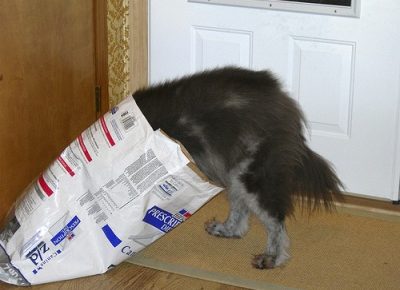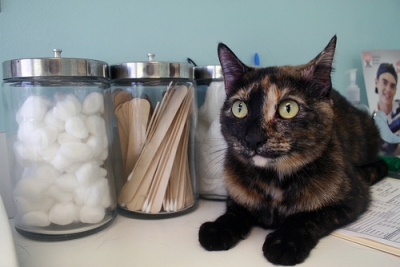
The best way to avoid the spread of contagious diseases is to keep the pet separated from other pets in the household.
Start with a trip to your veterinarian so you know what disease you are dealing with and how it can affect other pets. You probably will be directed to an examination room when you come in to avoid the waiting room. Your vet will examine your pet in this separate room as a precautionary measure. Be prepared in case your vet advises you to leave your pet at the hospital. Bring a favorite toy or blanket along if your pet has to stay.
If your pet can stay at home, you can help by taking some precautions. Keep the pet who is ill in a separate room if possible. Or use a crate – it will allow the pet that is sick to have much needed rest and help prevent spread of the disease.
If your contagious pet is a cat, set up a separate litter box and clean it regularly. Keep food and water dishes away from the other pets.
When you take your dog outdoors to eliminate, try using an area where other pets don’t frequent. Clean up right after your dog poops.
When your pet is well again, thoroughly disinfect the crate, dishes, litter box and/or room where your pet was confined. Caution – use a disinfectant that is pet-safe and rinse all articles thoroughly.
Bordetella (Kennel Cough) in dogs spreads quickly. There is a nasal spray that prevents kennel cough for a limited time.
FeLV, (Feline Leukemia Virus), FIV (Feline Immunodeficiency Virus) and FIP – Feline Infectious Peritonitis can spread to cats with compromised immune systems.
Having regular checkups at the veterinarian can help keep your pet healthy and can also catch any problems early.



